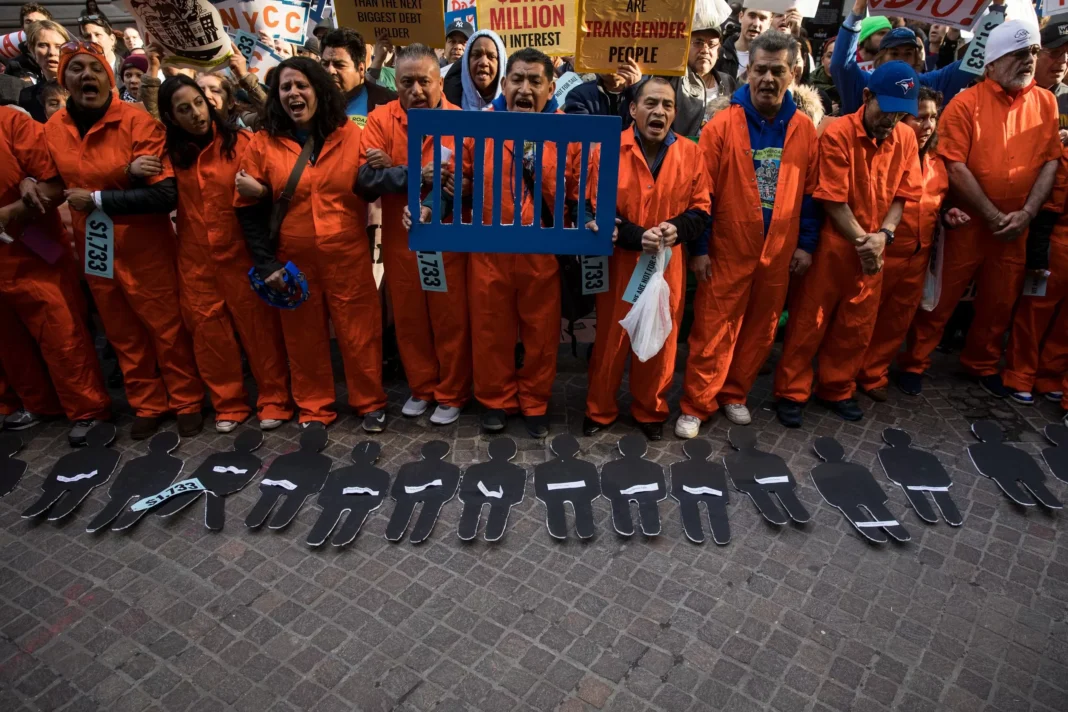Incarcerated Workers: A Vital Part of the Working Class
Award-winning journalist Kim Kelly has shed light on an often overlooked and marginalized group in the labor force – incarcerated workers. In her powerful statement, she reminds us that the history of labor in this country cannot be fully understood without acknowledging the contributions and struggles of those behind bars. It is time for us to recognize and support the organizing efforts and labor of incarcerated individuals, who are an integral part of the working class.
The United States has the highest incarceration rate in the world, with over 2.3 million people behind bars. This staggering number includes a significant portion of the working-age population, who are often forced to work for little to no pay in prisons. These individuals are not just serving time, but they are also contributing to the economy through their labor. Yet, their work is often exploited and undervalued, with little to no rights or protections.
Incarcerated workers are employed in a variety of industries, from manufacturing and agriculture to call centers and even fighting wildfires. They are expected to work long hours, often in hazardous conditions, for wages as low as a few cents per hour. This is modern-day slavery, where corporations and the government profit off the backs of incarcerated individuals.
But despite these challenges, incarcerated workers have been organizing and fighting for their rights. In 2016, prisoners across the country went on strike to protest against the inhumane conditions and exploitation they face. This was a historic moment, as it was one of the largest prison strikes in US history. It brought attention to the harsh realities of prison labor and sparked conversations about the need for reform.
The labor of incarcerated individuals is not just limited to their work within prisons. Many of them also have families who rely on their income to survive. When they are unable to work due to incarceration, their families suffer financially. This further highlights the importance of recognizing and supporting the labor of incarcerated workers, as it not only affects them but also their loved ones.
Moreover, the struggles of incarcerated workers are intertwined with the struggles of the broader working class. Many of them come from marginalized communities and have faced systemic oppression and discrimination, leading them to end up in prison. By ignoring their labor and their fight for fair treatment, we are perpetuating the cycle of exploitation and injustice.
It is time for us to listen to the voices of incarcerated workers and support their organizing efforts. This means advocating for fair wages, safe working conditions, and the right to unionize. It also means pushing for criminal justice reform and addressing the root causes of mass incarceration.
We must also recognize the impact of prison labor on the economy. By exploiting incarcerated workers, corporations are able to cut costs and increase their profits. This not only perpetuates income inequality but also undermines the labor rights of all workers. By standing in solidarity with incarcerated workers, we are standing up for the rights of all workers.
Incarcerated workers are not just a part of the working class, they are an essential part of it. Their labor and their struggles cannot be ignored any longer. As Kim Kelly reminds us, we cannot tell the true history of labor in this country without acknowledging the contributions and sacrifices of those behind bars.
It is time for us to recognize the humanity and dignity of incarcerated workers and support their fight for justice. Let us not forget that they are not just prisoners, they are workers, and they deserve to be treated as such. As a society, we must do better and ensure that all workers, including those behind bars, are treated with fairness and respect.


